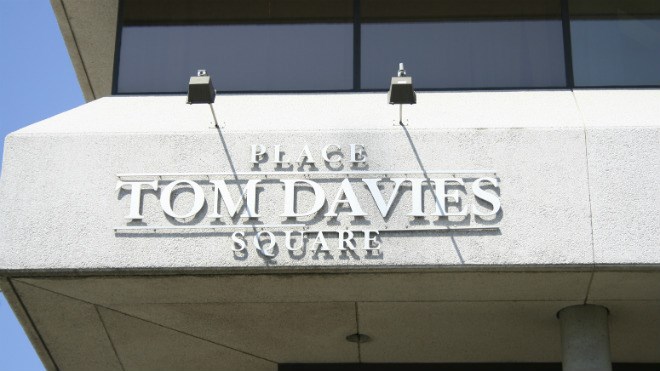When approved last Thursday, Greater Sudbury's $593 million budget came with a 3.6 per cent property tax increase, just 0.1 per cent higher than the target city council had set for itself.
But at a budget meeting a day earlier, the increase had been reduced to 3.3 per cent, partly by delaying projects that had been slated for 2019, such as the Lasalle Boulevard Corridor Study and staffing support for some capital projects.
Councillors also managed to find more than $2.5 million – money from a tax for capital projects in water/wastewater that was being phased out over three years – to devote to more roads spending.
If there was a theme in this year's budget deliberations, it was a new willingness to tap into unused reserve funds set aside for projects that has seen no work done for at least two years.
We'll find out more details on how much money that represents at a special meeting in April, but councillors were assured that the $2.5 million could be found in reserve funds. But with the extra money available, Ward 8 Coun. Al Sizer says he's upset council couldn't reach their own target.
“All I was disappointed about was that we weren't able to obtain a 3.5 per cent increase,” Sizer said a day after the he voted against the budget. “I would have liked to have seen it less than 3.5. But so although it's a small amount — one per cent of one percentage point — it's still not what we targeted. So I'm disappointed in that.”
Sizer hopes the meeting in April will allow them to find ways to reduce the increase, which would mean trimming about $145,000 to get them to 3.5 per cent. And he's worried about council relying too much on reserve funds, which could be needed depending on how Greater Sudbury is affected by the next provincial budget.
“In light of what's going on with the province and the new government and everything like that, I think we have to have some reserves and some money in place in case there are changes in our provincial funding.”
But he likes much of the budget, such as the $460,000 a year commitment over the next 10 years for community improvement programs (CIP), and moving ahead with The Junction.
While some people view them solely as new costs for the city, Sizer said they are economic drivers that will help grow the tax base. While he opposed giving the
Place des Arts $156,000 in operational money this year, that's only because the original business case said operational funds would flow after the centre opens.
“If we looked at The Junction, if we looked at the CIP program – if we looked at even Place des Arts ...we have to start generating some additional income to the community. There's a cost, yes, but we also have to (be) open for business.”
Ward 2 Coun. Michael Vagnini doesn't like how council does budgets to begin with, which rather than starting from zero and working from there, starts with an assumed increase. And he raised the alarm the city is headed toward a $3.1 billion infrastructure deficit without a plan to deal with it.
“I call it a top-down budget,” Vagnini said. “We get a number, and in this case it was 3.5, and then we work up to that number. But in my world as a chartered financial consultant for the past 30 plus years, we use a zero base. We look at our expenses and we build from there.”
He doesn't blame city staff – they just do what council asks of them, Vagnini says – but he says he can't understand why so much money is going to the big projects when there are pressing infrastructure needs they don't know how they will pay for.
“There was talk of a long-term financial plan to deal with that,” he said. “I guess they started it, but we really don't have a long-term plan.
“My concern is we're developing budgets and and we're still not addressing the essential services that are going to come back to bite us. The Junction and everything else are great projects, they really are, but let's have common sense prevail and figure out what is our long-term plan.”
He'd prefer a traditional line-by-line approach to city budgets, as opposed to the current system, where staff estimates how much of an increase will be needed to maintain services at the same level, and council debates the rest.
Ward 11 Coun. Bill Leduc, who voted no on his first budget as a councillor, was upset at exceeding the 3.5 per cent target, and that too much money was directed at projects that could have waited, instead of spending more fixing arterial roads
“We should have found more money for roads,” Leduc said.
Money for The Junction ($130,000) could have waited, as well as the Place des Arts operational funds, he said.
“We don't even have a location for The Junction.”
And he's not sure how councillors can make all these budget decisions when they don't know how much capital money will be available until the April meeting.
He's also not happy with the $55,000 in extra money approved for removing snowbanks downtown. With an existing budget of $1 million, they could make do with what they have, he said.
“I'm sure they could have found $55,000.”
